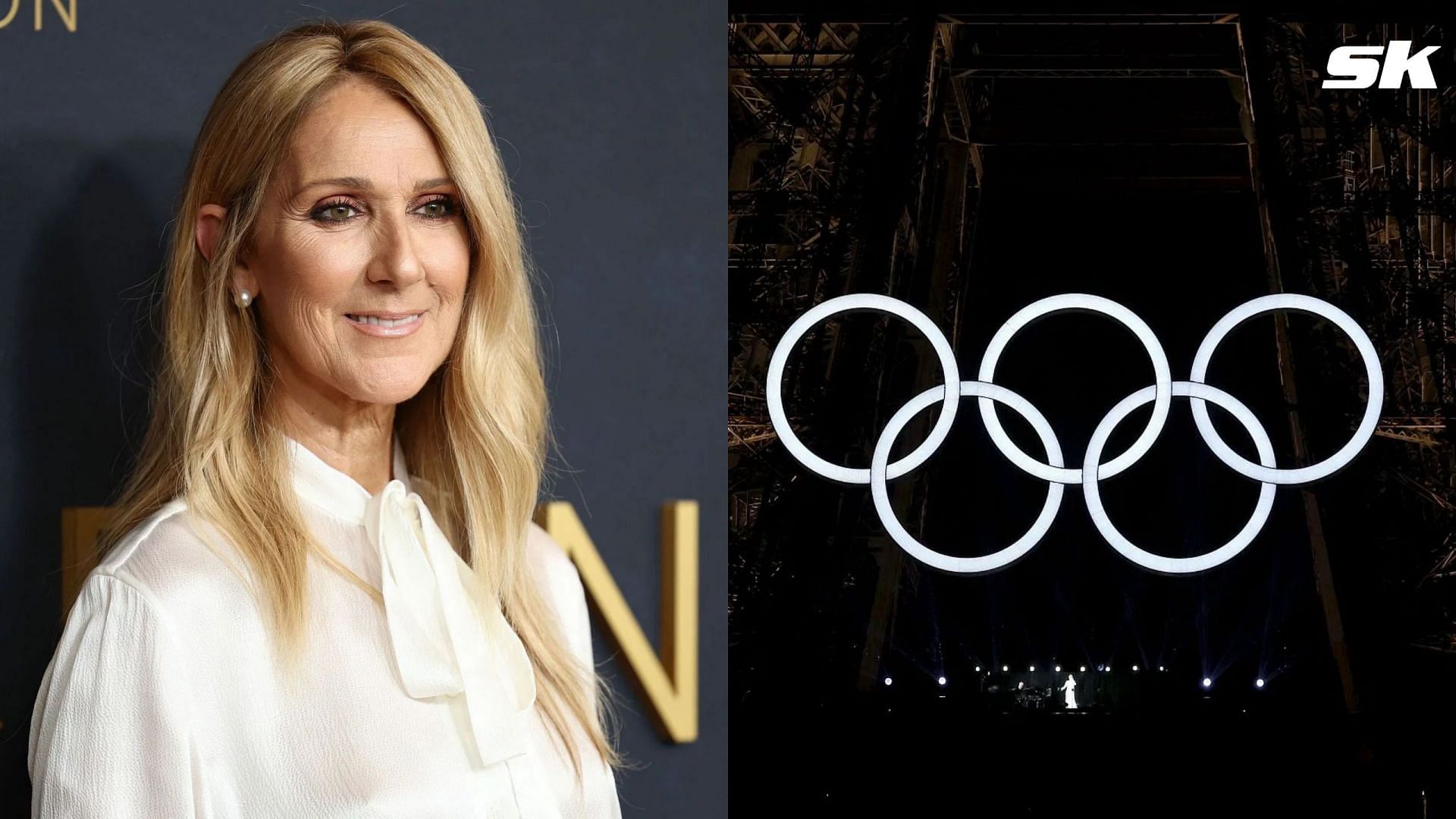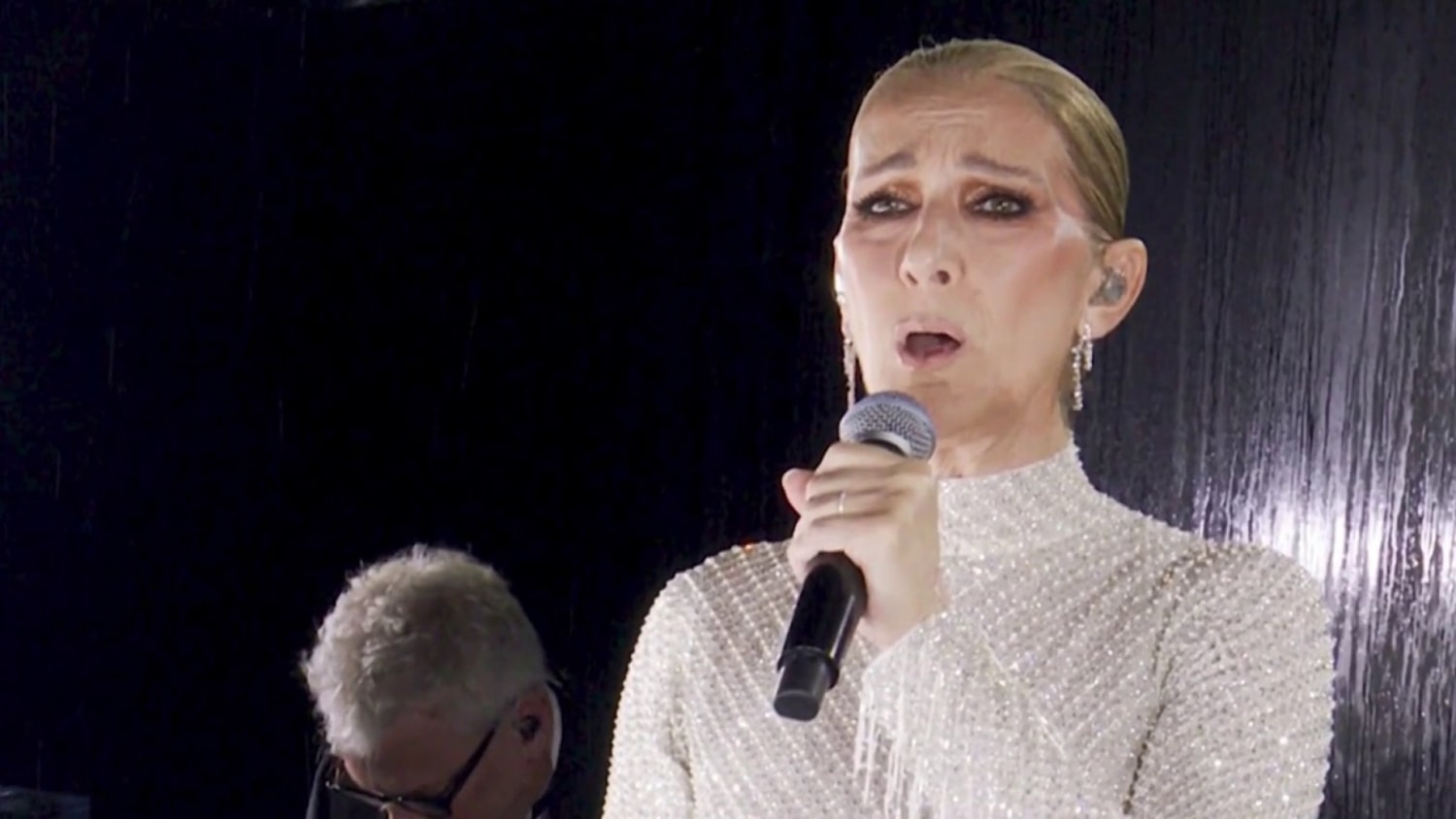Exploring The Translation Of Song Celine Sang At Olympics: A Timeless Anthem
The Olympics have always been a platform for showcasing global unity and cultural celebration, and one of the most memorable moments in Olympic history is Celine Dion's performance of the iconic anthem "The Power of the Dream." This timeless piece, performed during the 1992 Barcelona Olympics, captured the hearts of millions worldwide. In this article, we will delve into the translation of the song Celine sang at the Olympics, exploring its meaning, significance, and impact on audiences across different cultures.
This article aims to provide a comprehensive analysis of the song, including its lyrical depth, cultural relevance, and why it continues to resonate with people today. Whether you're a fan of Celine Dion or simply interested in the art of translation, this exploration will offer valuable insights into the world of music and language.
As we journey through the translation process, we'll examine how the song's message transcends linguistic barriers and connects with listeners on an emotional level. This article will also highlight the importance of cultural understanding in translating music, ensuring that its essence remains intact across languages.
- New Gomovies Your Ultimate Destination For Streaming Movies Online
- Where To Watch Movies Online Find Your Perfect Stream
Table of Contents
- Introduction to the Song
- Biography of Celine Dion
- Significance of the Song
- The Translation Process
- Cultural Impact
- Meaning Behind the Lyrics
- Language Challenges in Translation
- Historical Context of the Olympics Anthem
- Audience Reception
- Conclusion
Introduction to the Song
The song Celine sang at the Olympics, titled "The Power of the Dream," remains one of the most celebrated anthems in Olympic history. Composed by David Foster, this piece was specifically written for the 1992 Barcelona Games, symbolizing unity and hope. Its powerful lyrics and Celine's emotive delivery made it an instant classic.
As a bilingual performer, Celine Dion brought a unique perspective to the song, allowing it to resonate with both English and Spanish-speaking audiences. The anthem's universal themes of perseverance, dreams, and global harmony made it a perfect fit for the Olympics' mission of promoting peace and cooperation.
Biography of Celine Dion
Celine Dion, born on March 30, 1968, in Charlemagne, Quebec, Canada, is one of the most successful singers of all time. Her career spans over four decades, during which she has sold more than 250 million records worldwide. Celine's ability to connect with her audience through her powerful voice and heartfelt performances has earned her numerous accolades, including five Grammy Awards.
- Jeff Ross Cancer Update News Diagnosis Treatment Latest
- Stream Vmovee Free Movies Your Ultimate Guide To Enjoying Latest Hits Without Breaking The Bank
Celine Dion's Biodata
| Full Name | Céline Marie Claudette Dion |
|---|---|
| Date of Birth | March 30, 1968 |
| Place of Birth | Charlemagne, Quebec, Canada |
| Occupation | Singer, Songwriter |
| Language(s) | French, English |
Significance of the Song
The significance of "The Power of the Dream" lies in its ability to convey the spirit of the Olympics. The anthem encapsulates the values of determination, unity, and global harmony, making it a fitting tribute to the Games. Its enduring popularity is a testament to its universal appeal and emotional depth.
The Translation Process
Translating a song like "The Power of the Dream" requires a delicate balance between maintaining the original meaning and adapting it for a new audience. Translators must consider cultural nuances, linguistic differences, and the emotional tone of the lyrics. This section will explore the key steps involved in translating the song.
Key Challenges in Translation
- Preserving the emotional impact of the original lyrics
- Adapting metaphors and idioms for cultural relevance
- Ensuring the rhythm and melody align with the translated words
Cultural Impact
The cultural impact of Celine's performance at the Olympics cannot be overstated. Her rendition of "The Power of the Dream" introduced the song to millions of viewers worldwide, bridging linguistic and cultural divides. The anthem became a symbol of hope and unity, resonating with people from all walks of life.
Meaning Behind the Lyrics
The lyrics of "The Power of the Dream" are rich with symbolism and meaning. They speak of the universal human desire to overcome obstacles, chase dreams, and work together for a better future. Lines such as "I feel the power of the dream" and "Through the power of the dream" encapsulate the essence of the Olympic spirit, inspiring listeners to strive for excellence.
Language Challenges in Translation
Translating a song involves overcoming several language challenges. For example, certain phrases may not have direct equivalents in another language, requiring translators to find creative solutions. Additionally, maintaining the rhythm and flow of the music while adapting the lyrics can be a complex task. This section will examine some of the specific challenges faced in translating "The Power of the Dream."
Examples of Language Nuances
- Idiomatic expressions that may not translate directly
- Cultural references that require adaptation
- Rhyming schemes that differ between languages
Historical Context of the Olympics Anthem
The history of Olympic anthems dates back to the early 20th century, with each anthem reflecting the values and aspirations of its time. "The Power of the Dream" stands out as one of the most iconic anthems in Olympic history, symbolizing the global unity and hope that define the Games. This section will explore the historical context of Olympic anthems and their evolution over the years.
Audience Reception
The reception of "The Power of the Dream" was overwhelmingly positive, with audiences praising Celine's powerful vocals and the anthem's inspiring message. The song's ability to transcend linguistic and cultural barriers made it a favorite among fans worldwide. This section will discuss how the song was received by different audiences and its lasting impact on Olympic music.
Conclusion
In conclusion, the translation of the song Celine sang at the Olympics, "The Power of the Dream," highlights the importance of cultural understanding and linguistic adaptability in music. This timeless anthem continues to inspire millions, serving as a reminder of the unifying power of music and the Olympic spirit. We encourage readers to share their thoughts on this article and explore other pieces that celebrate the beauty of language and music.
For more insights into the world of music and translation, be sure to check out our other articles. Together, let's celebrate the universal language of music and its ability to bring people together.
- R Kellys Net Worth From Millions To Negative 2m
- Unleashing The Magic Of Moviesflixx Your Ultimate Movie Streaming Playground
,aspect=fill)
Olympic Anthem Official Olympic Games Hymn, Music & Lyrics

Who sang 'Imagine'? What song did Celine Dion sing? All interesting

Celine Dion Revealed the Reason She Appeared and Sang Only One Song at